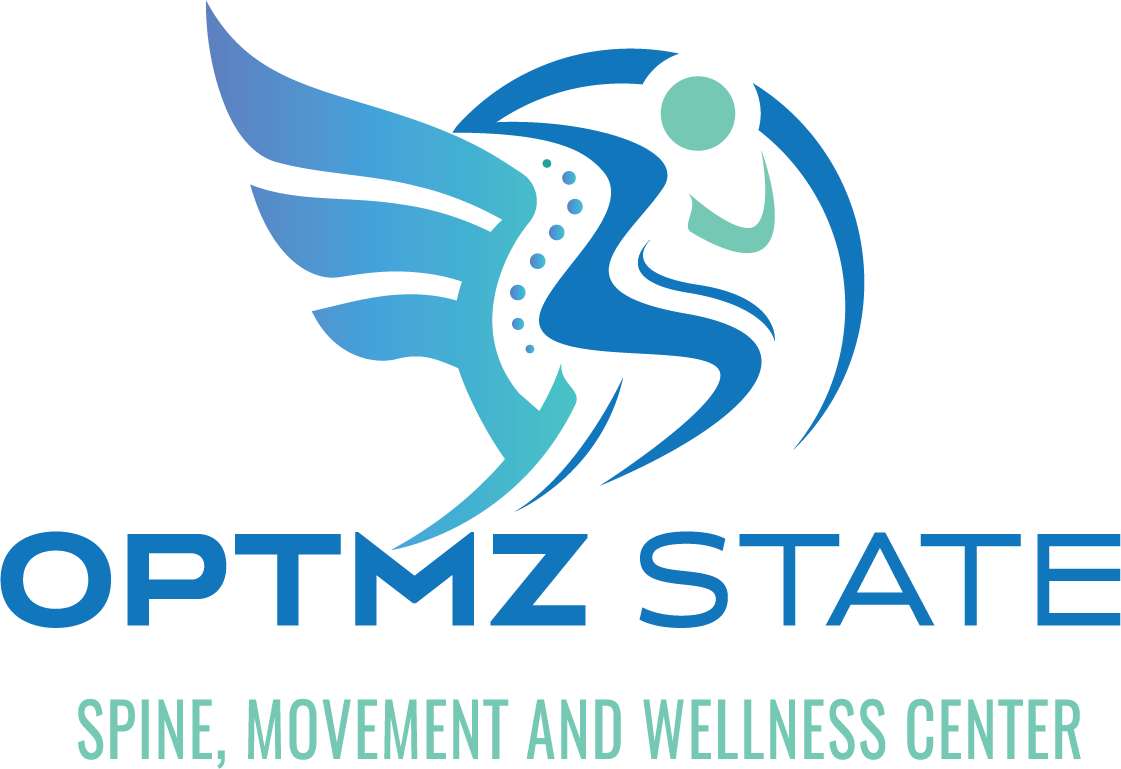You know that recovery is just as essential as training, but have you considered how expert support can elevate your efforts? Collaborating with professionals like nutritionists and physiotherapists can tailor your recovery plan to fit your specific needs, enhancing both your performance and resilience. Meanwhile, mental health support plays a significant role in maintaining motivation and focus. It's not just about resting; it's about strategically recovering. So, what's the best way to build your support team and incorporate these expert insights into your routine?
Importance of Recovery
Recovery is an essential part of any athlete's training regimen. Without proper recovery, you risk injury, burnout, and diminished performance. When you push your body to its limits during workouts, you're actually creating small tears in your muscles. Recovery allows these muscles to heal and grow stronger, which is significant for improving your overall performance.
You might think squeezing in extra training is the way to go, but neglecting recovery can lead to overtraining. If you ignore your body's signals, you might find yourself feeling fatigued, experiencing decreased motivation, and even facing serious injuries. Instead, prioritizing recovery can enhance your endurance, strength, and agility.
Incorporating rest days into your training schedule is essential. You don't have to stop moving entirely; light activities like walking or yoga can keep you engaged while still allowing your body to recuperate.
Sleep is equally important; it's during this time that your body repairs itself and processes the training you've completed.
Listen to your body. If you feel soreness or fatigue, take a step back. Implementing techniques like stretching, foam rolling, or soaking in an ice bath can accelerate your recovery process. Additionally, consider integrating active recovery days, where you engage in low-intensity activities.
Ultimately, you'll find that investing in recovery not only helps you maintain your physical health but also enhances your mental focus, preparing you for the next challenge ahead. Embrace recovery, and you'll reveal your full athletic potential.
Role of Nutritionists
After understanding the importance of recovery, it's clear that nutrition plays an essential role in supporting your body during this process.
That's where nutritionists come in. They're not just about meal plans; they're your partners in optimizing recovery through tailored nutrition strategies. Their expertise helps you understand what your body needs post-exercise to repair and rebuild effectively.
Here are four key roles nutritionists play in your athletic recovery:
- Personalized Meal Planning: They evaluate your individual needs, taking into account your activity level, workout intensity, and dietary preferences, creating a plan that suits you.
- Nutrient Timing: Nutritionists educate you on the best times to consume specific nutrients, ensuring your body gets what it needs when it needs it most—like after a workout.
- Hydration Strategies: They emphasize the importance of hydration, helping you understand how much fluid you need and what types of drinks can aid in recovery.
- Supplement Guidance: Nutritionists can advise you on the appropriate use of supplements, ensuring you get additional nutrients without overdoing it or compromising your health.
Benefits of Physiotherapy
Physiotherapy's benefits extend far beyond just rehabilitation; it plays an essential role in enhancing your overall athletic performance. When you engage with a physiotherapist, you gain access to tailored treatment plans that address your specific needs. This personalized approach not only helps in recovering from injuries but also improves your strength, flexibility, and mobility, making you a more well-rounded athlete.
One major advantage of physiotherapy is injury prevention. Your physiotherapist can identify weaknesses in your movement patterns, allowing you to correct them before they lead to serious injuries. Strengthening these areas helps you perform better, whether you're running, swimming, or playing team sports.
Moreover, physiotherapy aids in optimizing your recovery time. With techniques like manual therapy, ultrasound, or electrical stimulation, you can enhance healing and get back to your training routine faster. This proactive approach means you won't have to sit on the sidelines for long.
Additionally, physiotherapy can enhance your body awareness. By understanding how your body moves and reacts, you can make smarter decisions about your training and competition strategies. This knowledge empowers you to push your limits safely.
Lastly, regular sessions can keep your body in peak condition, allowing you to maintain your competitive edge. You'll find that physiotherapy not only supports your physical health but also contributes to your overall performance, helping you become the best athlete you can be.
Mental Health Support
Mental resilience is essential for athletes, especially when facing challenges in training and competition.
You can enhance your performance by incorporating effective stress management strategies and mindfulness techniques into your routine.
Let's explore how these practices can support your mental health and overall athletic recovery.
Importance of Mental Resilience
While physical training is essential for athletic performance, the importance of mental resilience can't be overstated. Your ability to bounce back from setbacks and maintain focus under pressure plays a critical role in your overall success.
Mental resilience allows you to navigate the ups and downs of training and competition, ensuring you stay on track toward your goals.
Here are four key reasons why mental resilience is crucial for athletes:
- Enhances Performance: Resilient athletes often perform better under pressure, as they can maintain composure and focus during critical moments.
- Promotes Recovery: A strong mental framework helps you deal with setbacks, injuries, or poor performances, allowing for a quicker emotional recovery.
- Builds Confidence: Resilience fosters a belief in your abilities, which can boost your self-esteem and motivate you to push through challenges.
- Improves Adaptability: When faced with unexpected changes, resilient athletes can adjust their strategies and stay committed to their training plans.
Incorporating mental resilience into your routine not only supports recovery but also enhances your overall athletic journey.
Strategies for Stress Management
Managing stress effectively is essential for athletes looking to maintain peak performance and overall well-being. One of the simplest strategies you can adopt is establishing a routine. Consistency in your daily schedule can provide a sense of control, reducing uncertainty and anxiety.
Make sure to prioritize sleep, as adequate rest is vital for both mental and physical recovery.
Another effective strategy is to set realistic goals. Break larger objectives into smaller, achievable tasks that help you focus on the process rather than the outcome. This approach minimizes pressure and allows you to celebrate small victories along the way.
Don't underestimate the power of social support. Share your experiences with teammates, coaches, or friends. Their insights can provide encouragement and different perspectives that help you cope with stress.
Physical activity itself is a great stress reliever. Incorporate light workouts or mobility exercises into your routine to release endorphins, which can boost your mood.
Lastly, consider scheduling regular downtime. Engaging in hobbies or simply relaxing can recharge your mental batteries, making you more resilient in the face of challenges.
Mindfulness Techniques for Athletes
In today's fast-paced athletic environment, incorporating mindfulness techniques can greatly enhance your mental health and performance. By grounding yourself in the present moment, you can reduce stress, improve focus, and foster resilience.
Here are four effective mindfulness techniques tailored for athletes:
- Breath Awareness: Take a few minutes before or after training to focus solely on your breathing. Inhale deeply, hold for a moment, and exhale slowly. This practice calms your mind and prepares you for competition.
- Body Scan: Lie down comfortably and mentally scan your body from head to toe. Notice areas of tension, and consciously relax them. This can help you become more aware of your physical state and improve recovery.
- Visualization: Picture yourself successfully executing your sport. Visualize the techniques, the environment, and the feelings associated with success. This mental rehearsal can boost your confidence and performance.
- Gratitude Journaling: Spend a few minutes each day writing down things you're grateful for. This shifts your mindset and cultivates a positive outlook, essential for overcoming challenges.
Incorporating these techniques into your routine can lead to improved mental clarity and better overall performance.
Recovery Technologies
Recovery technologies play a significant role in enhancing athletic performance and speeding up the healing process. As an athlete, you know how vital it's to bounce back after intense training or competition. Utilizing the right recovery tools can make all the difference in your training regimen.
One popular technology is compression therapy. Compression garments or devices help reduce muscle soreness and swelling by improving blood circulation. You can wear compression sleeves during or after workouts to experience quicker recovery times and enhanced performance.
Another effective option is cryotherapy, which involves exposing your body to extremely cold temperatures for short periods. This method reduces inflammation and alleviates pain, helping you recover faster from strenuous activities.
Additionally, you might want to explore percussion therapy devices, like massage guns. These tools deliver rapid bursts of pressure to targeted muscle groups, promoting blood flow and easing tension. By incorporating these devices into your routine, you can maintain ideal muscle function and reduce recovery time.
Don't forget about electrical stimulation units, which use electrical impulses to contract muscles and promote recovery. These can be particularly useful for rehabilitating injuries or enhancing muscle recovery after workouts.
Lastly, consider investing in sleep technology, like smart mattresses or sleep trackers. Quality sleep is essential for recovery, and these tools can help you monitor your sleep patterns and make necessary adjustments.
Personalized Recovery Plans
Creating a personalized recovery plan can greatly enhance your athletic performance.
By focusing on tailored nutrition strategies, customized exercise regimens, and effective recovery monitoring tools, you can optimize your recovery process.
Let's explore how these elements work together to support your unique needs.
Tailored Nutrition Strategies
Tailored nutrition strategies can greatly enhance your athletic recovery process. By focusing on what you eat, you can markedly speed up recovery times and improve performance.
Here are four key components to take into account when crafting your personalized nutrition plan:
- Macronutrient Balance: Make sure you're getting the right balance of carbohydrates, proteins, and fats. Carbs fuel your workouts, proteins help repair muscles, and healthy fats support overall health.
- Hydration: Don't underestimate the importance of staying hydrated. Water and electrolytes are essential for recovery, especially after intense workouts.
- Timing: Your body needs nutrients after exercise. Aim to consume a combination of protein and carbs within 30 minutes post-workout to maximize recovery.
- Vitamins and Minerals: Incorporate a variety of fruits and vegetables to make certain you're getting essential vitamins and minerals. These nutrients are fundamental for reducing inflammation and supporting muscle repair.
Customized Exercise Regimens
A well-structured exercise regimen can considerably complement your nutrition strategy, enhancing your recovery and overall performance. By customizing your workout plan, you can target specific muscle groups and address your unique needs, ensuring you recover effectively from your athletic endeavors.
Start by evaluating your current fitness level and goals. Are you looking to improve strength, flexibility, or endurance? With this clarity, you can incorporate exercises that align with your objectives.
For example, if you're focusing on strength, prioritize resistance training and allow adequate rest between sessions. On the other hand, if endurance is your goal, integrate more cardiovascular activities with proper recovery times.
Don't forget to include mobility and flexibility work in your regimen. Incorporating dynamic stretches and yoga can help prevent injury and facilitate recovery.
Listen to your body—if you feel fatigued or sore, adjust your routine accordingly. This personalized approach not only helps in recovery but also keeps you motivated and engaged.
Recovery Monitoring Tools
Utilizing recovery monitoring tools can greatly enhance your personalized recovery plan. These tools help you track your progress, adjust your routines, and guarantee you're getting the most out of your recovery efforts.
By keeping tabs on your recovery metrics, you can make informed decisions about when to push harder or take a break.
Here are four key benefits of using recovery monitoring tools:
- Data-Driven Insights: They provide real-time data on your body's response to training, helping you identify patterns and make adjustments.
- Customized Feedback: You receive tailored recommendations based on your unique metrics, guaranteeing your recovery plan fits your needs.
- Goal Tracking: You can set and monitor your recovery goals, keeping you motivated and focused on your progress.
- Injury Prevention: By identifying early signs of fatigue or stress, these tools help you avoid injuries before they happen.
Incorporating these tools into your routine can empower you to optimize your recovery, leading to better performance and overall well-being.
Take advantage of technology to support your journey to peak athletic performance!
Building a Support Team
Building a support team is essential for any athlete aiming to enhance recovery and performance. You can't do it all alone, and having a group of skilled professionals by your side can make a huge difference. Start by identifying key members who can contribute to your recovery journey.
A sports therapist or physiotherapist should be at the top of your list. They can assess your physical condition, treat injuries, and provide tailored rehabilitation exercises. Pairing them with a knowledgeable coach will help you create a training program that aligns with your recovery goals.
Nutrition plays a significant role in recovery, so don't overlook the importance of a sports nutritionist. They can guide you on how to fuel your body properly, ensuring you get the right nutrients to recover efficiently.
Additionally, consider including a mental performance coach. They can help you manage stress, maintain focus, and develop a positive mindset, which is essential in your recovery process.
Lastly, don't underestimate the value of a supportive community. Surround yourself with friends, family, and fellow athletes who understand your journey and can provide encouragement. This emotional support can be just as important as physical recovery.
Conclusion
Incorporating expert support into your recovery routine is essential for enhancing performance and preventing injuries. By working with nutritionists, physiotherapists, and mental performance coaches, you can create a personalized recovery plan that addresses your unique needs. This collaborative approach not only optimizes your physical recovery but also boosts your mental resilience. Remember, building a strong support team fosters motivation and emotional well-being, empowering you to overcome challenges and achieve your athletic goals.



